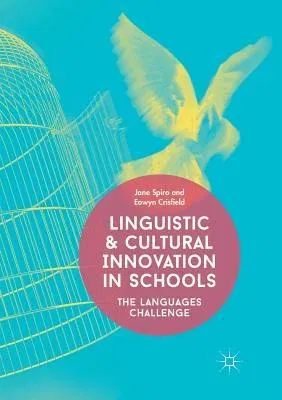Jane Spiro
(Author)Linguistic and Cultural Innovation in Schools: The Languages Challenge (Softcover Reprint of the Original 1st 2018)Paperback - Softcover Reprint of the Original 1st 2018, 6 June 2019

Qty
1
Turbo
Ships in 2 - 3 days
In Stock
Free Delivery
Cash on Delivery
15 Days
Free Returns
Secure Checkout
Print Length
223 pages
Language
English
Publisher
Palgrave MacMillan
Date Published
6 Jun 2019
ISBN-10
331987778X
ISBN-13
9783319877785
Description
Product Details
Authors:
Book Edition:
Softcover Reprint of the Original 1st 2018
Book Format:
Paperback
Country of Origin:
NL
Date Published:
6 June 2019
Dimensions:
21.01 x
14.81 x
1.3 cm
ISBN-10:
331987778X
ISBN-13:
9783319877785
Language:
English
Location:
Cham
Pages:
223
Publisher:
Weight:
294.83 gm

